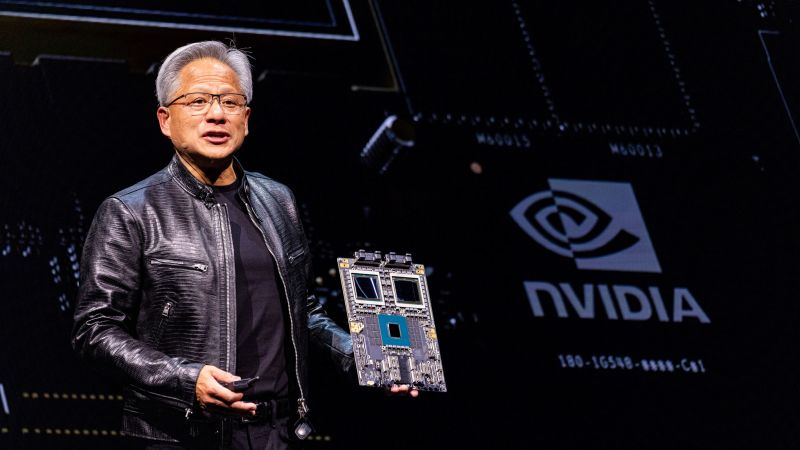Nvidia and AMD have launched their next generation AI chips in Taiwan, as the competition with Intel continues to heat up. Nvidia’s CEO, Jensen Huang, announced the rollout of the Rubin platform in 2026, following the recent release of the Blackwell platform for data centers. The Rubin platform will feature new GPUs, a CPU called Vera, and advanced networking chips. Huang emphasized the transformative impact of AI and accelerated computing on the future of technology.
Investors have responded positively to Nvidia’s advancements in AI technology, with the company’s shares more than doubling over the past year. Nvidia currently holds around 70% of the AI semiconductor sales market, with AMD and Intel working to challenge its dominance. AMD CEO Lisa Su also unveiled the company’s latest AI processors in Taipei, with plans for new product developments over the next two years. The global demand for cutting-edge chips used in data centers to support generative AI applications is on the rise.
Both Nvidia and AMD, originally known for selling GPUs to gamers, have pivoted towards developing chips for AI applications. These chips are now utilized to power generative AI technologies like ChatGPT. Lisa Su stated that AI is a top priority for AMD, and they are at the beginning of an exciting time for the industry. The new MI325X accelerator will succeed the MI300 and feature improvements in memory, bandwidth, and compute performance. AMD plans to release a new product family every year, with the MI350 and MI400 set for future launches.
Intel is also gearing up to launch its next-generation desktop CPUs, Arrow Lake, in the fourth quarter of this year. CEO Patrick Gelsinger is expected to speak at Computex, emphasizing Intel’s commitment to advancements in AI technology. The competitive landscape in the AI chip market is driving innovation and development of new products to meet the growing demand for AI applications. Nvidia, AMD, and Intel are all focused on pushing the boundaries of AI technology and accelerating the transformation of various industries.
As the competition intensifies, Nvidia remains at the forefront of AI chip development with the announcement of the Rubin platform. With a strong market presence and a roadmap for future semiconductors on a one-year rhythm, Nvidia is poised to maintain its dominance in the AI semiconductor market. While competitors like AMD and Intel are making strides in developing new products to challenge Nvidia, the company’s innovative approach to AI technology sets it apart in the industry. The race for AI supremacy continues to drive advancements in chip technology, paving the way for exciting innovations in the future.


